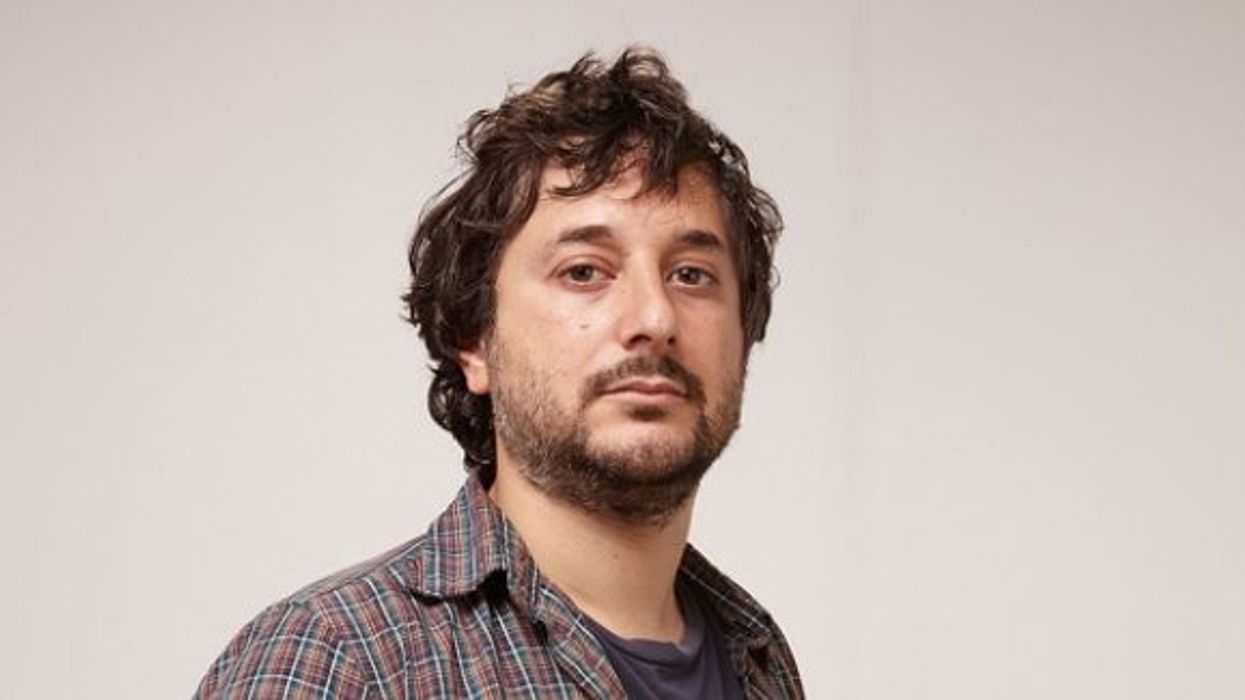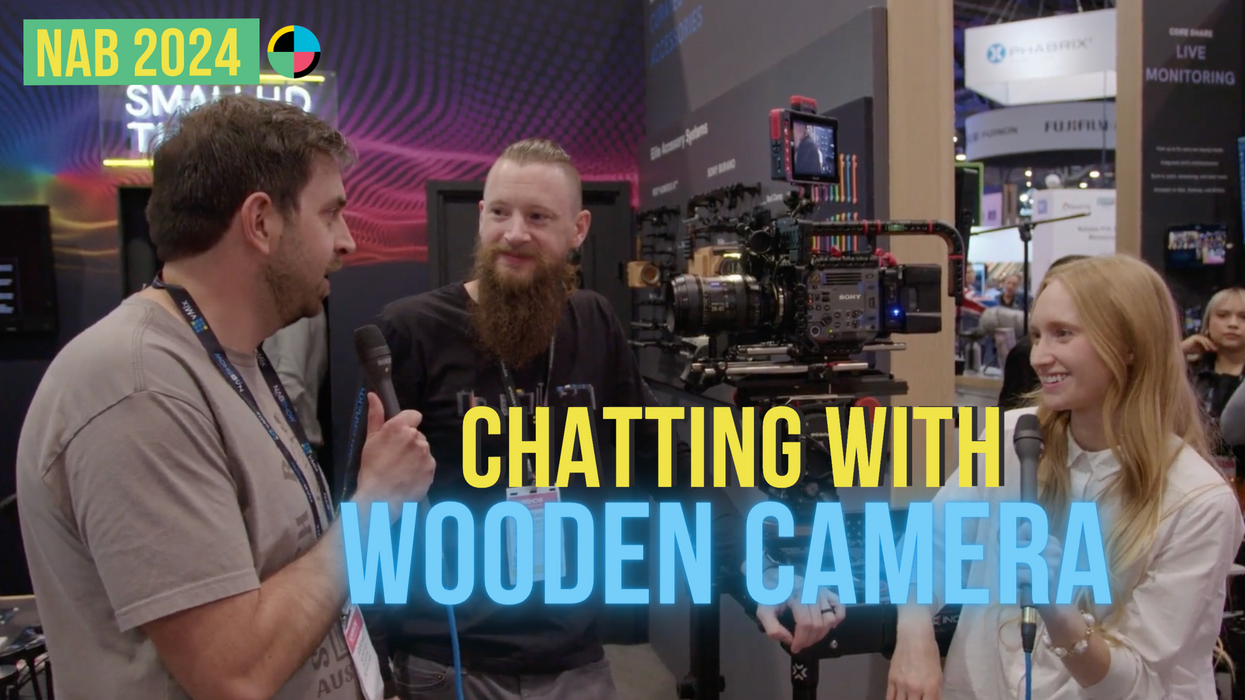Harmony Korine Reflects on His Career & Celebrates the 20th Anniversary of 'Kids' on the WTF Podcast
Any chance to get closer to the enigmatic, delirious director is a chance well-savored, and we've got a whole hour plus of insightful banter.

In the podcast below, comedian and podcast aficionado Marc Maron sits down to talk with director/writer Harmony Korine one on one from the Bowery hotel in New York city to ramble on topics such as technology changing our ability to get lost, why Cops was revolutionary, his "no end-game" approach to working with actors, and why he's preferred working on film vs. video (or digital).
Skip to 14:00 for the start of the interview (or scroll through the quotes I've pulled out if you're short on time):
In between the quotes are some trailers from his films:
On release forms:
Release? I don't know about any of that. You just forge all of that... The way Gummo was being shot was pretty inclusive, we would pull people out of houses. That part was difficult because I didn't understand the idea of releases. You'd have people have to go back and find those people and that's a crazy thing to do.
On aging:
You're the same person. It's not a rejection of anything. If you're gonna keep being able to live and grow and expand, you have to be receptive to stages.
On coming back to NY for 20th anniversary of Kids:
It's my least favorite place to come back to. I recognize it but I don't recognize it. It feels like a shopping mall to me, in a lot of ways. The city itself is beautiful but it holds a lot of memories, a lot of ghosts. It's so aggressive here. It feels like an office. I don't think I could ever live here again. I also don't know what it stands for anymore.
On what NY used to be like:
It was very much culturally about people trying to get lost. We always talk about the danger of the city, but there was a palpable danger or violence, this idea that if you went to this place or did this thing you wouldn't come out the other end. That was exciting because it was extremes, and it was big and you could get lost in it. And culturally it was weird, you could go into movie theaters and junkies would be passed out. It wasn't like people in boxes.
On technology:
You could never make [Kids] again, not because it's more difficult, but because there are more rules. Just narratively, you could never have her trying to find Telly, because now she would just grab a cell phone and text him. You can't really get lost in America anymore, you can't make a road movie anymore because everyone has GPS. It's impossible to lose yourself anymore. All the technology really made drama difficult in some ways, because in order to be accurate you have to address it. A lot of it is not that exciting. [Kids] wouldn't have made sense now.
On cops:
Cops is really the first show where you're seeing the inside of people's housing, seeing how they lived. It was pretty revolutionary. You were going into these places where you weren't invited, but in a mainstream context which up until that point most Americans weren't used to being exposed in that way.
On moviemaking:
I always just felt like I want to attack. I want to attack in an interesting way, but I've always wanted the films or artwork or whatever to have a more sensory component. Where it just goes through you. It's something that washes through you, or attacks you then disappears. Because I don't really have anything to say, I don't have like a point. I've never been interested myself in making a specific statement. It's more about a feeling.
I want you to feel like you're there. It's a kind of controlled chaos. It's okay to be lost. Things don't always have a beginning, a middle, and an end. Sometimes it's nice for things to just exist, to hit you, attack you, and go. You don't always have to completely understand it.
On truth:
I was never interested in this idea of truth in film, truth in art. Truth is boring. You want something that elevates, that transcends, more like poetry. Something more sensory that goes beyond truth.
On time between films:
I need time between films because the movies take so much out of me. I've really never had an easy experience with a film. Maybe it's the types of movies that I make, or maybe I'm a greedy director, I always need more, I always don't feel satisfied. I feel like I never have enough time so I'm always railing up against it. It makes me nervous to be on set and be comfortable. People will come up to you and say "Wow that looked like a lot of fun" — I don't even know what fun on movies is. I paint and I enjoy that in a completely different way. That's more fun for me because it's my own time and it's direct and I'm away from people. But the movies I have to gear up, it's like going to war in some ways.
On starting:
I become obsessed with specific images, like one or two things that I don't even know why I see them past the point of just wanting them to exist. So then I start to create a story or some type of narrative around that. So if I'm going to get to this point, how would it begin?
On actors:
I want to be surprised. I want to load them up on as much stuff as I can, details, looks, sounds, put it inside, walk away and let them take it to another place. Because I don't have an endgame with them except that I want them to be great. I just want them to light it on fire, and you hope you can inspire them with the character and who this person is that they go and invent it. Directing actors it's more like when you become believable, when you become the person that you're supposed to be then there's really no right or wrong. You can't make mistakes when you're inside the character, but you can still be not exciting. You can be authentic and boring. Like Gary Oldman's character in True Romance. You're so taken by it, you don't even question it. Sometimes I'll get in debates with actors about logic in movies. I'm always thinking you want to go a little bit beyond logic. As an audience, if you're thinking about logic then the movie isn't working.
On film versus digital:
I shoot features mostly on film, but I don't have any pure allegiance towards that. I've always felt that video, film, VHS, they're almost like instruments. They all have a tone, there's a place for them, they all have a sound. There's this idea that because you can shoot unlimited using video that that's better. I don't necessarily agree with that. I actually feel like there's no decision-making with a lot of that type of directing. I feel like you just leave the camera on and try to make sense of it in the edit. I like being forced to decide and having a limited time.
People say nobody notices anymore, that audiences can't tell the difference. Maybe they can't articulate it but I think there's a psychology to the grain structure and an emotional component that you're not aware of. It's something that's working on you that you're not even sure it's working. I don't like treating video, like "we can make this look like film." Why don't just use what really looks good? It's also something, there's a magic in that dissonance, in the fog of analog, there's a weird magic to it. I always say that film is like romance, video is like reality.
I also like it when the actors think they have a limited amount of time to do it. There's a decisiveness to it. I hate this modern photography where you just leave the cameras on. There's no point of view. There's nothing exciting about that. It becomes the corporatization of artwork. I just like the feeling of being connected to that. I started out making movies that way and it feels right to me. Also, every movie I make it seems like the last movie I could ever make on film.
If you aren't already, be sure to subscribe to Maron's podcast, as he interviews some truly interesting folks.
Source: WTF Podcast














